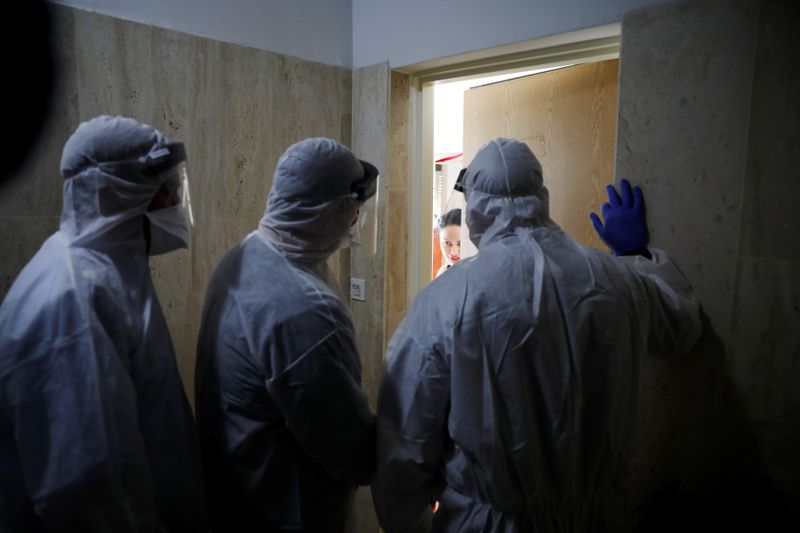By Maayan Lubell
JERUSALEM (Reuters) - Israel's government will invoke emergency regulations to speed up the deployment of cyber monitoring in the fight against the new coronavirus, Prime Minister Benjamin Netanyahu said on Monday.
The plan to use anti-terrorist technology to track infected people and anyone with whom they have come in contact drew criticism from civil rights groups when Netanyahu first proposed it over the weekend.
Such a move would normally require parliamentary consent. Netanyahu moved to circumvent that process when he said in a nationally televised address on Monday night that his cabinet would invoke emergency regulations overnight to put the order into effect, for 30 days only.
"Israel is a democracy and we must maintain the balance between civil rights and the public's needs," Netanyahu said. "These tools will very much assist us in locating the sick and stopping the virus from spreading."
The Association for Civil Right in Israel called the move, "a dangerous precedent and a slippery slope."
Further measures announced by Netanyahu on Monday included putting most the country's public sector workforce on a one-month leave and reducing private sector employees to 30 percent attendance at their workplaces.
There are nearly 300 confirmed cases of the respiratory illness that can cause pneumonia in Israel and no fatalities reported so far.
Israel has taken stringent steps to contain coronavirus - closing schools, malls, restaurants and most places of leisure, as well as limiting gatherings to 10 people.
Israel's defense minister said on Monday that some empty hotels would be converted to isolation centers for patients, and would begin operating this week.
The measures even affected the swearing-in of The Knesset, Israel's parliament. Lawmakers on Monday took the oath in groups of three at a time to comply with the social distancing instructions, instead of the usual ceremony attended by all 120 parliamentarians.
The March 2 election, the third in less than a year, has left the country in political deadlock with Netanyahu's caretaker government running the country on a version of the 2019 budget.
The Finance Ministry's chief economist said on Monday that Israel's economy will likely grow between zero and 1% in 2020, if the impact of the coronavirus subsides by June. A recession would be inevitable if the health crisis continues for a longer period, she said.

In the Palestinian territories, 39 coronavirus cases have been confirmed in the occupied West Bank, with none in the Gaza Strip. The Palestinian Health Ministry said on Monday that anyone coming into the West Bank from Jordan must go into self isolation for 14 days.